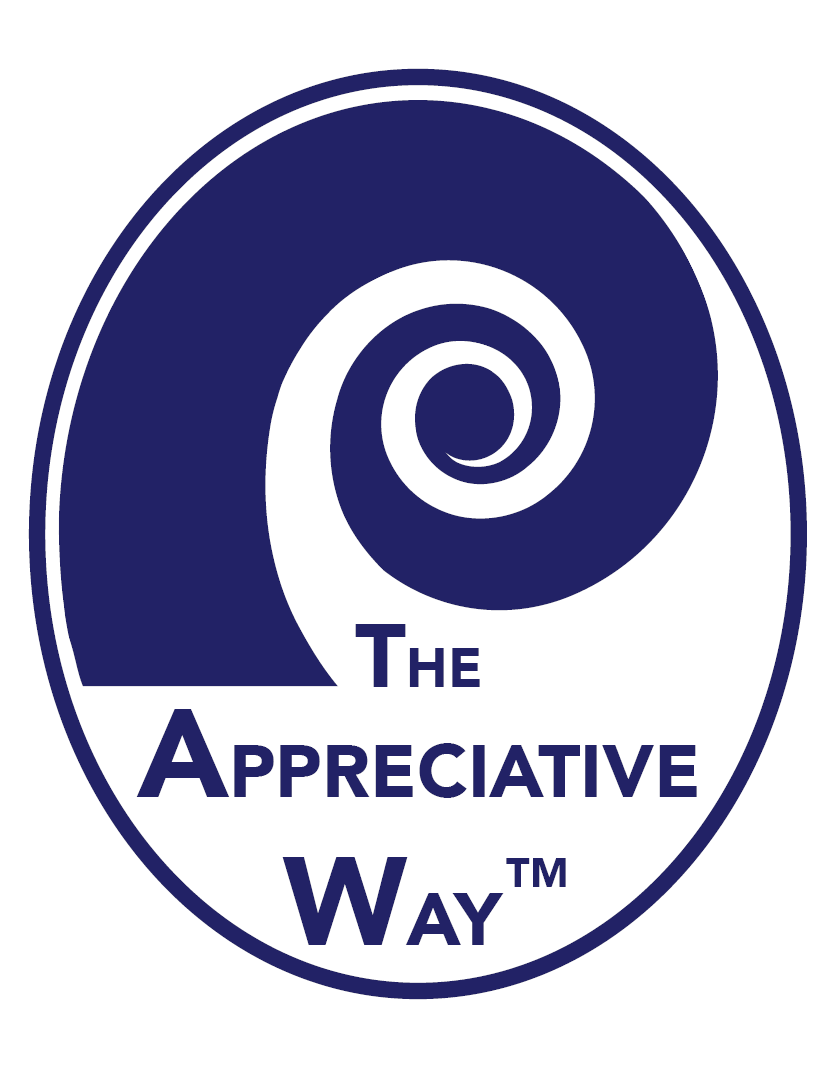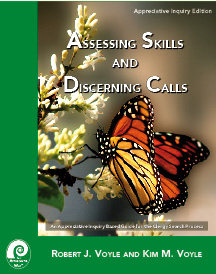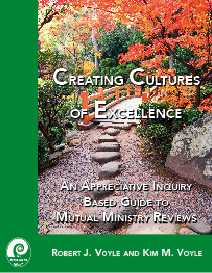

Clergy Search Resource
Over 380 pages of detailed strategies to Assess clergy skills and Discern Calls.
Now available as an online library.
Creating Cultures
of Excellence
Appreciative Inquiry Based Guide to Mutual Ministry Reviews
- Templates and Worksheets
- For Congregations
- Individual Performance
- Coaching Strategies
Stay Connected
Receive The Appreciative Way our Free Email Newsletter
and receive advance notice of future programs.
Privacy: We never rent, sell, or share your email.
Congregational Coaching
|
Coaching for Congregational Development |
Does your Congregation Need to:
|
| Email Rob Voyle For an Initial Consultation |
Congregational Coaching
Our good friend and colleague Bishop Ed Leidel describes his development work with small congregations as congregational coaching which he defines as:
Congregational Coaching is finding God's synergy
in the midst of community.
Since we couldn't describe our work with congregations any better we decided to use his explanation. Ed goes on to describe his understanding of congregational coaching as an incarnational approach of entering into and joining with the congregation to discover the guidance, collegiality, and encouragement of the Holy Spirit. This contrasts the classical idea of a consultant as the expert advisor or authority who tells and directs people what to do.
| Congregational Coaching | Congregational Advising |
|---|---|
| Collegial | Hierarchical |
| Relational | Directional |
| Behind-the-scenes | Up-front focus of attention |
| Initiative is with congregation | Initiative is with the advisor |
| Hands-on helping process | Distant micro-managing |
| Discovers gifts | Critiques failures |
| Encourages | Directs |
| Synergetic | "Shifts the chairs" |
| Transformational | Transitional |
| Utilizes congregational leaders' innate gifts and resources | Dependent on gifts and resources of the advisor |
| Encourages mutual interdependence | Creates cycles of dependence and isolating independence |
|
Generates hope
|
Generates need for supervision
|
Adapted from Bishop El Leidel
One Size Doesn't Fit All
Because this appreciative approach to congregational coaching is incarnational it allows each congregation to develop unique responses to their local community needs.
Rather than imposing external ideas and programs the appreciative approach allows transformational solutions to arise from within the community. As such they are owned by the community and have their own internal motivation and are more likely to be locally relevant and sustainable.
Our Congregational Coaching Services
If you have questions about what would work best for you and your congregation send Rob an email and request a free consultation to explore what strategy would be of benefit to your community.
>>
View the Types of Consulting Services we Provide

